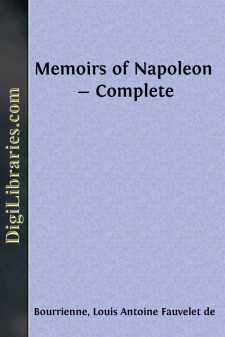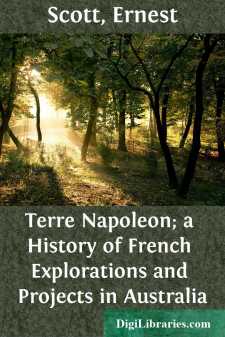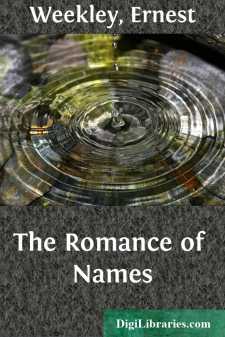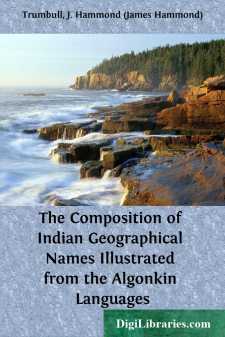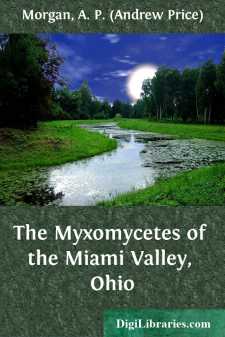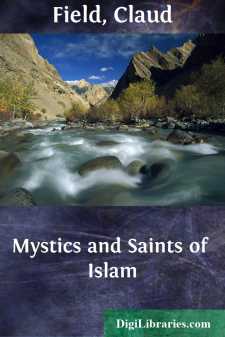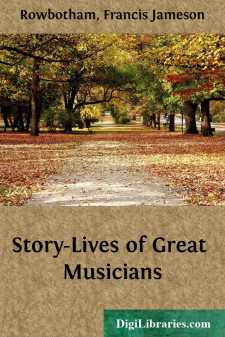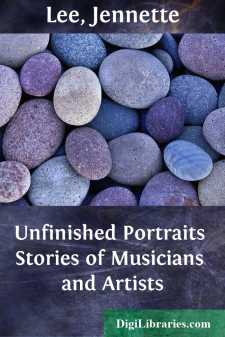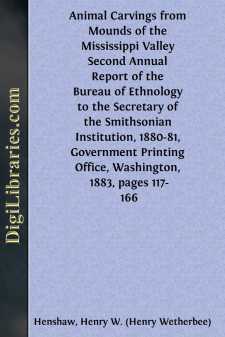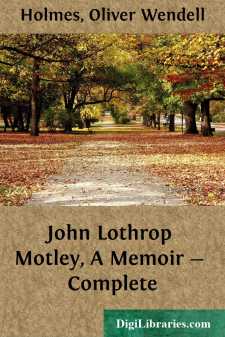Non-Classifiable
- Non-Classifiable 1768
Non-Classifiable Books
Sort by:
The Memoirs of the time of Napoleon may be divided into two classes—those by marshals and officers, of which Suchet's is a good example, chiefly devoted to military movements, and those by persons employed in the administration and in the Court, giving us not only materials for history, but also valuable details of the personal and inner life of the great Emperor and of his immediate...
more...
by:
Ernest Scott
PREFACE. The main object of this book is to exhibit the facts relative to the expedition despatched to Australia by Napoleon Bonaparte in 1800 to 1804, and to consider certain opinions which have been for many years current regarding its purpose. Until about five years ago the writer accepted without doubt the conclusions presented by leading authorities. One has to do that in regard to the vast mass...
more...
by:
Ernest Weekley
CHAPTER I OF SURNAMES IN GENERAL "The French and we termed them Surnames, not because they are the names of the Sire, or the father,but because they are super-added to Christian names." (CAMDEN, Remains concerning Britain.) The study of the origin of family names is at the same time quite simple and very difficult. Its simplicity consists in the fact that surnames can only come into existence...
more...
INDIAN GEOGRAPHICAL NAMES. A proper name has been defined to be "a mere mark put upon an individual, and of which it is the characteristic property to be destitute of meaning." If we accept this definition, it follows that there are no proper names in the aboriginal languages of America. Every Indian synthesis—names of persons and places not excepted—must "preserve the consciousness...
more...
MYXOMYCETES, Wallr. Fructification essentially a minute membranaceous vesicle, the SPORANGIUM inclosing the SPORES, the product of a motile protoplasmic body called the PLASMODIUM. Microscopic organisms with the habit of the Fungi. The ripe spore of the Myxomycetes is globose or ellipsoidal in shape, with the epispore colorless or colored, and smooth or marked by characteristic surface—sculpture...
more...
by:
Claud Field
PANTHEISTIC SUFISM I.—THE IMPORT OF ISLAMIC MYSTICISM The moral law proclaimed by Moses three thousand years ago agrees with that which governs men to-day, irrespective of their various stages of culture; the moral precepts of a Buddha and Confucius agree with those of the Gospel, and the sins for which, according to the Book of the Dead of the ancient Egyptians, men will answer to the judges of the...
more...
BACH hristoph, I wish you would let me have that book of manuscript music which you have in your cupboard—the one which contains pieces by Pachelbel, and Frohberger, and Buxtehude, and ever so many others—you know which I mean. I will take such care of it if you will only lend it to me for a little while.' Christoph was about to leave the room, but he turned sharply to his little brother as...
more...
by:
Jennette Lee
The soft wind of an Italian spring stirred among the leaves outside. The windows of the studio, left open to the morning air, were carefully shaded. The scent of mulberry blossoms drifted in. The chair on the model-stand, adjusted to catch the light, was screened from the glare; and the light falling on the rich drapery flung across its back brought out a dull carmine in the slender, bell-shaped...
more...
INTRODUCTORY. The considerable degree of decorative and artistic skill attained by the so-called Mound-Builders, as evidenced by many of the relics that have been exhumed from the mounds, has not failed to arrest the attention of archæologists. Among them, indeed, are found not a few who assert for the people conveniently designated as above a degree of artistic skill very far superior to that...
more...
John Motley, the great-grandfather of the subject of this Memoir, came in the earlier part of the last century from Belfast in Ireland to Falmouth, now Portland, in the District, now the State of Maine. He was twice married, and had ten children, four of the first marriage and six of the last. Thomas, the youngest son by his first wife, married Emma, a daughter of John Wait, the first Sheriff of...
more...


